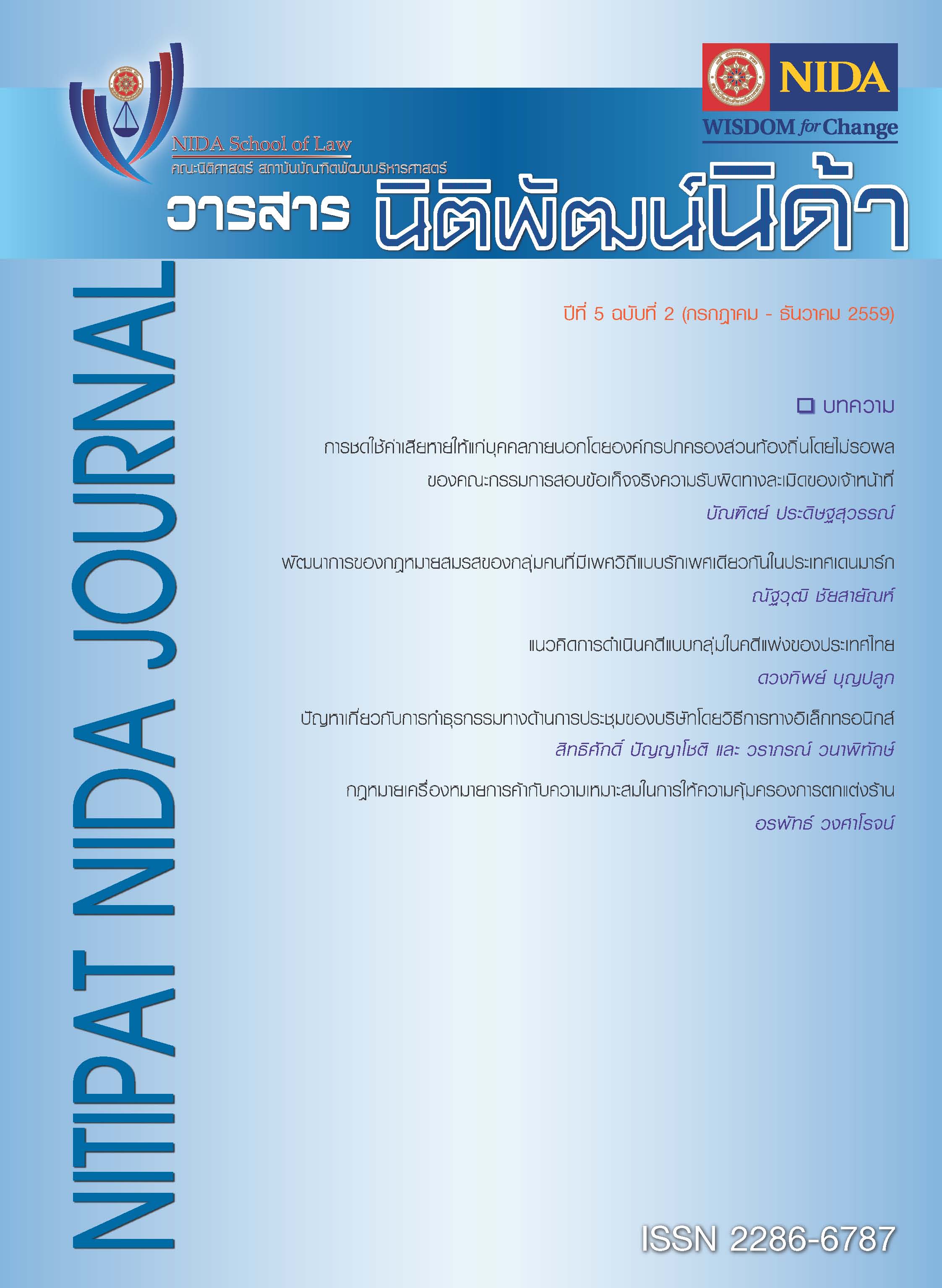Legal Consideration on the senator’s authrorities in Constitution of the Kingdom of Thailand (B.E.2560 (2017))
Keywords:
senate, senator, authorityAbstract
This present work aims to study the concept, the theory of the history and authority of Thai senators and to analyze problem issues of history, authority of Thai senators comparing with other countries, including United State of America (USA), France and Japan. The obtained results should be suggested the suitable approaches to design further the Thai senate.
The results of this study demonstrated that the Paliament of Thailand should be bicameral system, consisted of the senate and the house of representatives. The senate must be the representative of several sources such as various social professional and local interest group. At least 1 senator should be elected from the local government from each province. The remaining senators should be from various professions, such as the representatives from agricultural council. Moreover, the senators should be a half number of the House of Representatives’ members. According to the 2560 B.E. Constitution of the Kingdom of Thailand, the senate directly worked in legislative assembly, so a half of the senators should be from direct election and a half ones from choosing from several interest and professional groups by the Senate Selection Committee. The qualifications senators were independence from the members of the House of Representatives or any political parties and not being parents, marriage couples, children or relative of the members of the House of Representatives, senators and politicians. For the role of senators, firstly the senators should act as “screener, considerer and evaluator” of new legislation and also be proposed the new legislation. Secondly, the senators should be screened the government by asking for the facts of complicated issues and not be able to appoint or withdraw any people in any positions. Thirdly, the co-ordination between the senate and the house of representatives’ should be corrected and amended the constitution of the Kingdom of Thailand, approved the related issues, but not the issues associated with the recruitment of the Prime Minister.
References
ชาญชัย แสวงศักดิ์. (2552). กฎหมายรัฐธรรมนูญแนวคิดและประสบการณ์ของต่างประเทศ. กรุงเทพมหานคร: วิญญูชน.
นเรศ อยู่สนิท. (2543) มาตรการทางกฎหมายในการให้สิทธิประชาชนเสนอข้อบัญญัติท้องถิ่นตามบทบัญญัติรัฐธรรมนูญแห่งราชอาณาจักรไทย พุทธศักราช 2540 มาตรา 287. วิทยานิพนธ์ปริญญามหาบัณฑิต คณะนิติศาสตร์ มหาวิทยาลัยรามคำแหง.
บรรเจิด สิงคะเนติ. (2558) หลักพื้นฐานเกี่ยวกับสิทธิเสรีภาพ และศักดิ์ศรีความเป็นมนุษย์. พิมพ์ครั้งที่ 4. กรุงเทพฯ:วิญญูชน.
บวรศักดิ์ อุวรรณโณ. (2543). บทบาทอำนาจหน้าที่ของวุฒิสภาตามรัฐธรรมนูญแห่งราชอาณาจักรไทย พุทธศักราช 2540. พิมพ์ครั้งที่ 2. นนทบุรี: สถาบันพระปกเกล้า.
บุญศรี มีวงศ์อุโฆษ. (2559). กฎหมายมหาชนเบื้องต้น. พิมพ์ครั้งที่ 3. กรุงเทพฯ: โครงการตำราและเอกสารประกอบการสอน คณะนิติศาสตร์ มหาวิทยาลัยธรรมศาสตร์.
พระอธิการพีรัชเดช มหามนตรี. (2552) หลักธรรมมะในพระไตรปิฎกกับหลักการและรูปแบบการปกครองระบอบประชาธิปไตย. วิทยานิพนธ์ปริญญามหาบัณฑิต คณะรัฐศาสตร์ มหาวิทยาลัยสุโขทัยธรรมาธิราช.
วรเจตน์ ภาคีรัตน์. (2557) คำสอนว่าด้วยรัฐและหลักกฎหมายมหาชน. พิมพ์ครั้งที่ 2. กรุงเทพฯ : โครงการตำราและเอกสารประกอบการสอน คณะนิติศาสตร์ มหาวิทยาลัยธรรมศาสตร์.



